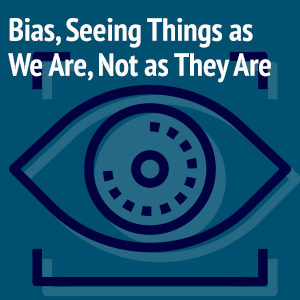 What is ‘Organization Development’?
What is ‘Organization Development’?
Organization Development is an intentional set of processes and practices designed to enhance the ability of organizations to meet their goals. It entails “…a process of continuous diagnosis, action planning, implementation and evaluation, with the goal of transferring (or generating) knowledge and skills so that organizations can improve their capacity for solving-problems and managing future change.”(See: Organizational Development Theory) Organization Development deals with a range of features, including organizational climate, organizational culture (i.e., assumptions, values, norms/expectations, patterns of behavior) and organizational strategy. It seeks to strengthen and enhance the long-term “health” and performance of an organization, often by focusing on aligning organizations with their rapidly changing and complex environments through organizational learning, knowledge management and transformation of organizational norms and values.
What is an organization?
At the most abstract level, an organization is a collectivity of people, a social entity, which seeks to achieve specific aims and goals, and typically is characterized by a structure of designated roles, established rules, a system or structure of authority, a process for decision-making, and a division of labor among organizational members. Organizations are composed of a discreet “membership,” that is, a limited population of incumbents or personnel. Organizations exist in, affect, and are affected by, the larger social and economic environment. Formal, large-scale organizations may take the form of businesses, schools, the military, churches, prisons, foundations, and non-profits.
The Relationship Between Organizations and Evaluation
In seeking to achieve goals, organizations often design and implement discreet initiatives, policies, and programs. They mobilize resources to achieve specific ends. Non-profit organizations, for example, implement programs that mobilize resources in the form of activities, services, and products that are intended to improve the lives of program participants/recipients. “A program is a collection of resources in an organization and is geared to accomplish a certain goal or set of goals. Programs are one major aspect of the non-profit’s structure. The typical non-profit organizational structure is built around programs, that is, the non-profit provides certain major services, each of which is usually formalized into a program.”(See: Overview of Non-Profit Program Planning). In serving program participants, nonprofits strive to effectively and efficiently deploy program resources, including knowledge, activities, services, and materials, to positively affect the lives of those they serve.
Although evaluations are customarily aimed at gathering and analyzing data about discrete programs, the most useful evaluations often collect, synthesize, and report information that can be used to improve the broader operation and health of the organization that hosts the program. Program evaluation thus can contribute to organization development, the deliberately planned, organization-wide effort to increase an organization’s effectiveness and/or efficiency and to enable the organization to achieve its strategic goals.
Brad Rose Consulting Aids Organizational Development
Brad Rose Consulting works at the intersection of evaluation and organization development. While our projects often begin with a focus on discrete initiatives and programs, the questions that drive our evaluation research provide insights into the effectiveness of the organizations that host, design, and fund those programs. Findings from our evaluations often have important implications for the development and sustainability of the entire host organization. This is especially true in the case of small-to-medium sized nonprofit organizations and educational organizations, whose core programs often comprise the bulk of the organization’s structure and raison d’être. Information from our evaluations can be used to clarify the organization’s goals and objectives, to identify key organizational challenges and help to develop ways to address these, and to strengthen the overall effectiveness of the organization’s efforts. Additionally, Brad Rose Consulting’s evaluations offer an ideal opportunity for an organization to reflect on its practices and purposes, to rethink ways to achieve the organization’s mission, and to identify new data-based strategies for enhancing the organization’s long-term viability and well-being. To learn more about our program development practice visit our Program development & Funding page.
Resources
See our previous post: Helpful Resources: Program Evaluation Supports Strategic Planning
Overview of Nonprofit Program Planning by Carter McNamara


